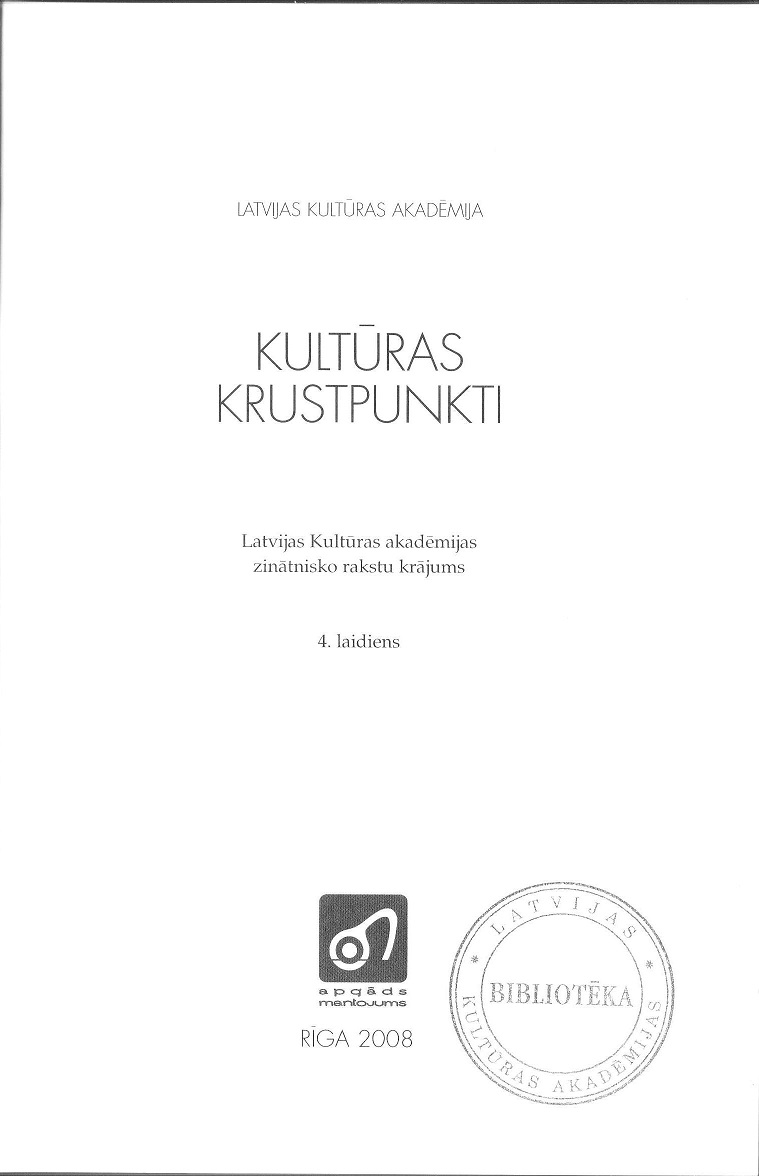Maņu hierarhija. Smaržas un oža
Hierarchy of the Senses: Perfume and Smell
Author(s): Sandris MūriņšSubject(s): Philosophy of Mind, Culture and social structure , Cognitive Psychology, Neuropsychology, Sociology of Culture
Published by: Latvijas Kultūras akadēmija
Keywords: hierarchy of the senses; vision; hearing; smell; neglected sense; perfume; culture;
Summary/Abstract: There is a hierarchy of the senses, where the vision and hearing dominate, and smell is neglected. Language can be transcribed both visually and phonetically, however it cannot possess the aspect of smell. Similarly one can find many synonyms for "see" and "hear" but the amount for "smell" is more restricted. Additionally, there are social categories for persons with visual and hearing disabilities, but there is no social category for those who have difficulties with their sense of smell. In order to understand why smell is the neglected sense, the establishment of the hierarchy of the senses is analysed through Jacques Lacan's model of development of the psyche. It is argued that the exclusion of smell originates in the phases of development of the imaginary and symbolic psyche, where logic prevails to develop a strong connection of the senses, "to see", "to hear", and "to say", with the human psyche. By applying the Lacanian theory of the four discourses: the Master, the University, the Hysteric and the Analyst, the question of how perfume fits into a culture dominated by images and words is addressed. It is concluded that perfume, in a spontaneous fashion, strives to break down cultural bonds between images and words.
Journal: Culture Crossroads
- Issue Year: 4/2008
- Issue No: 1
- Page Range: 80-88
- Page Count: 9
- Language: Latvian

